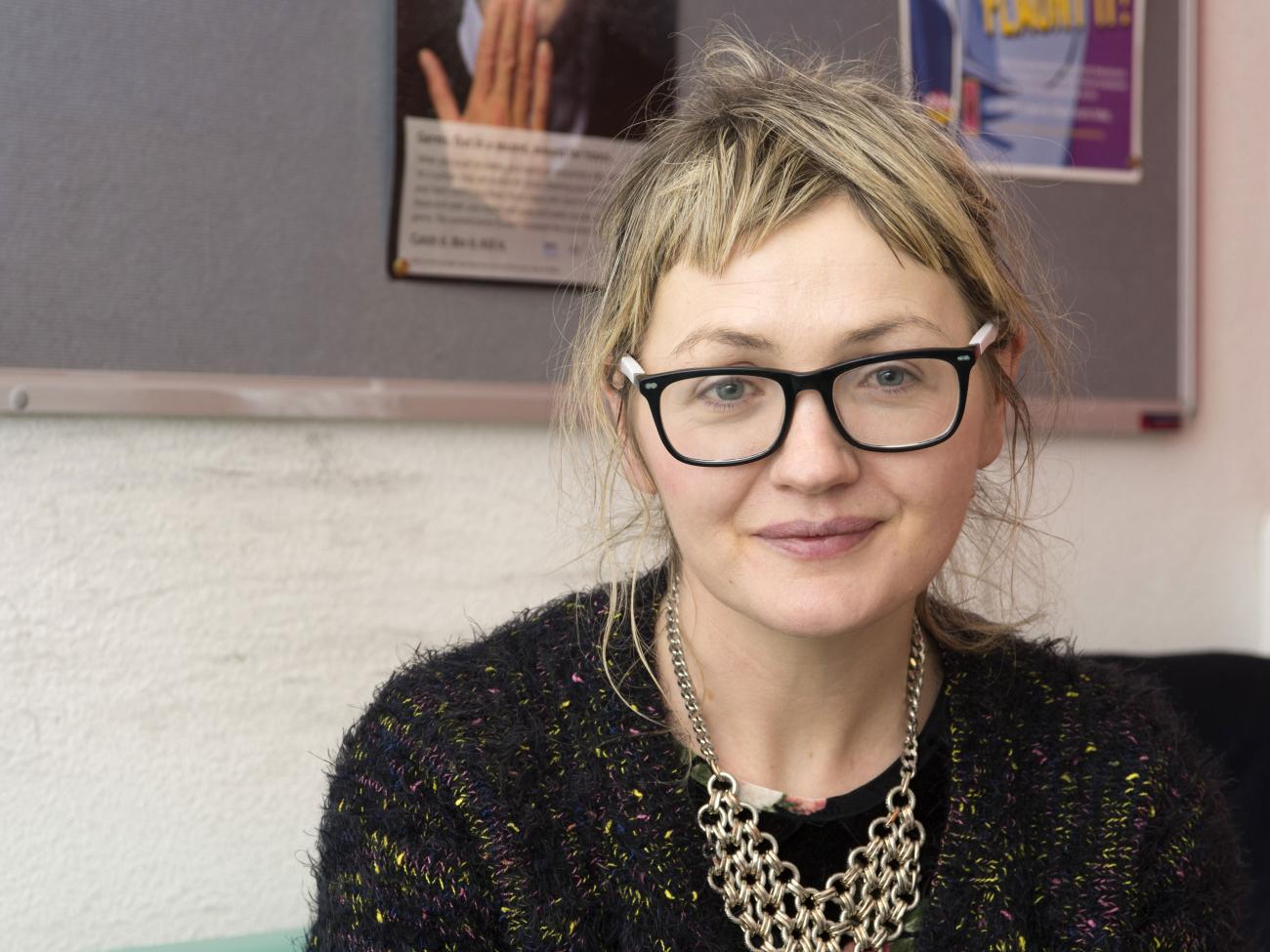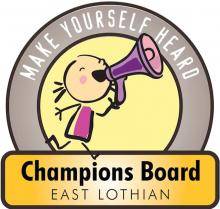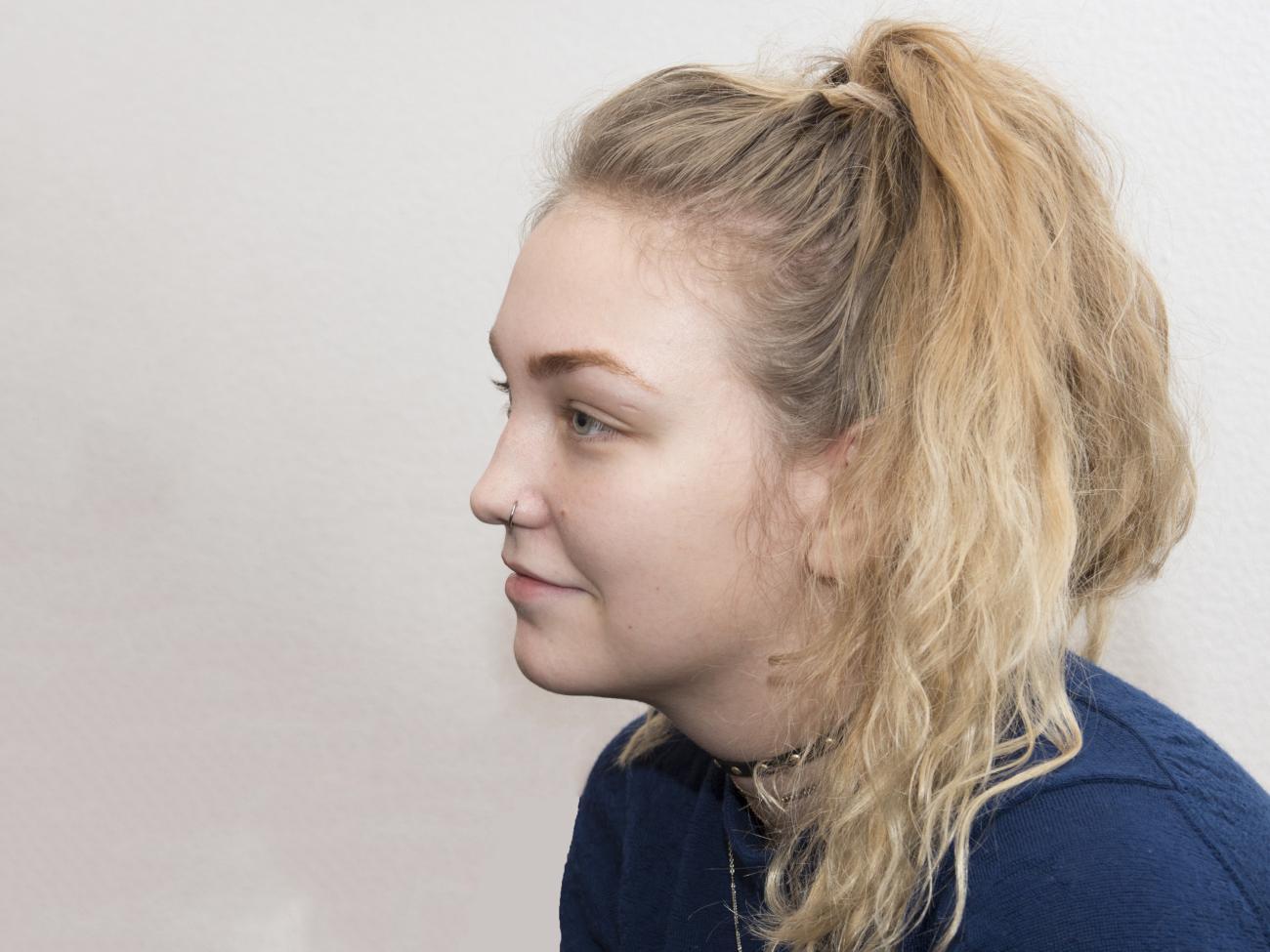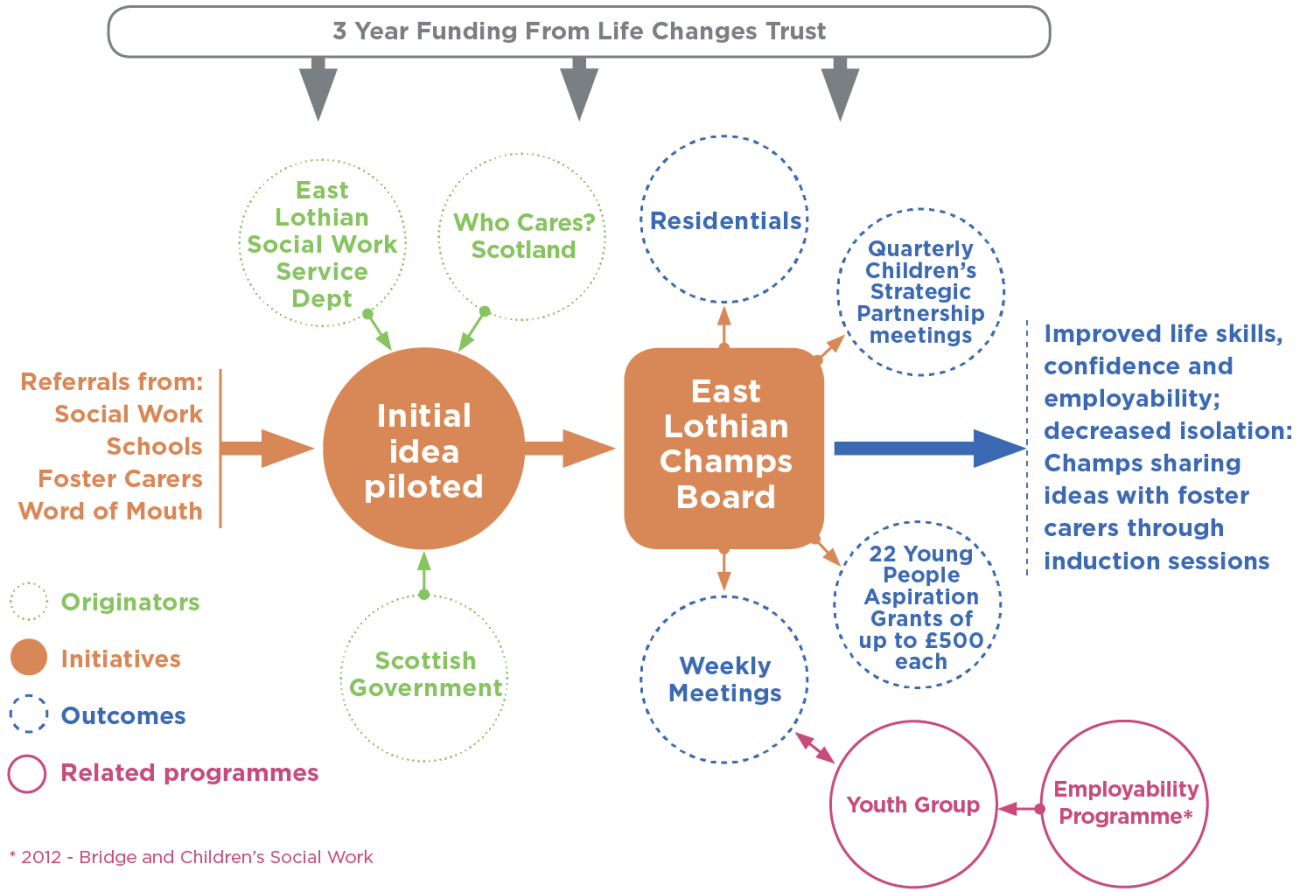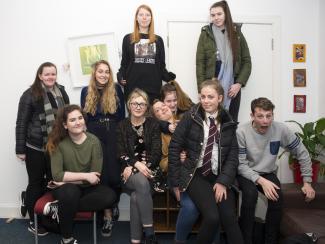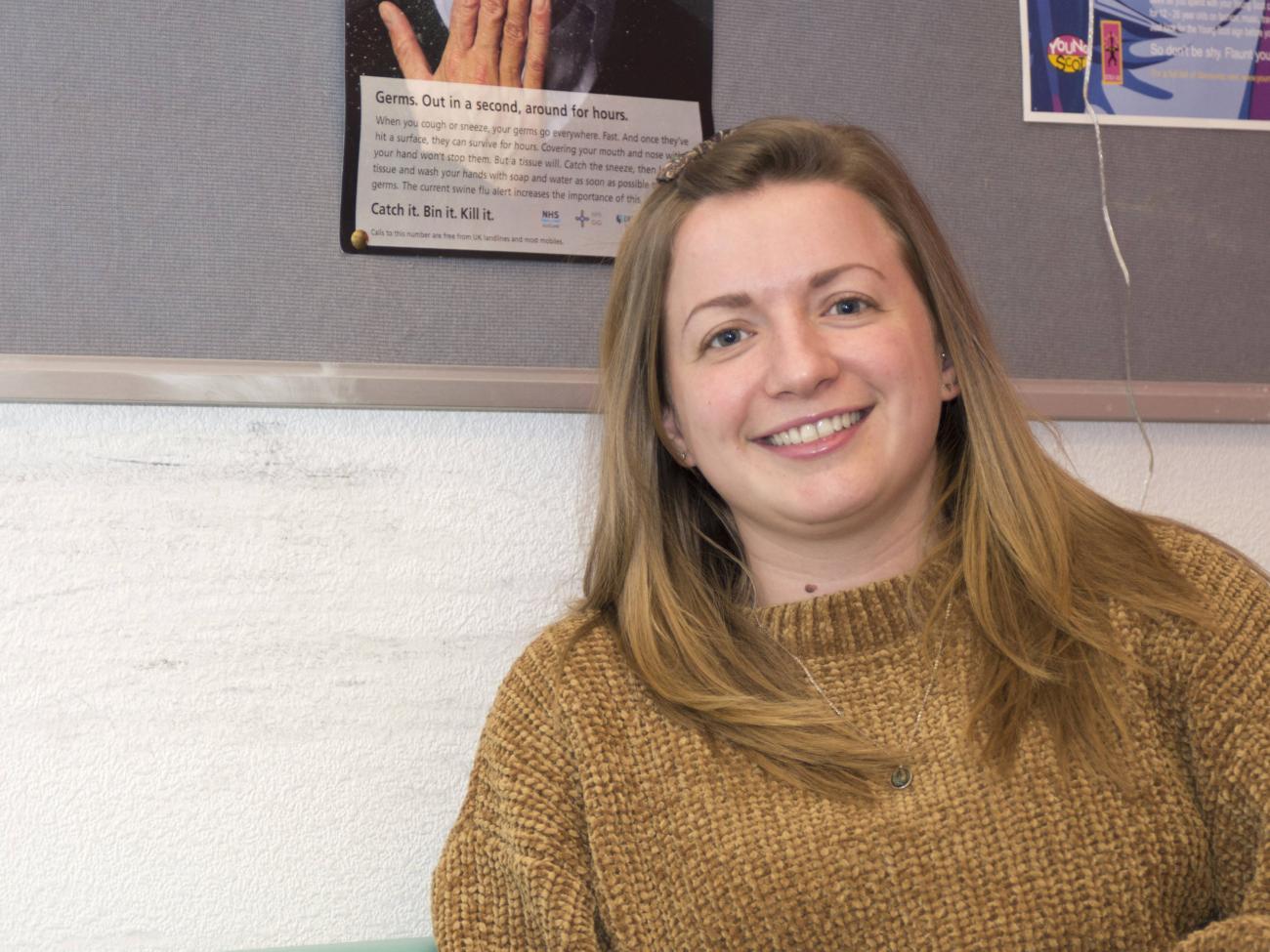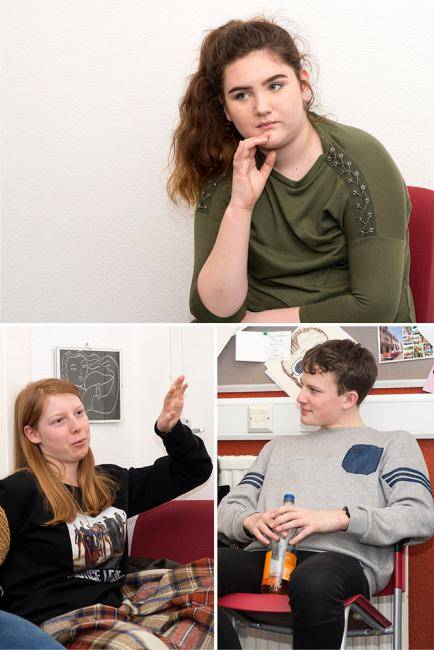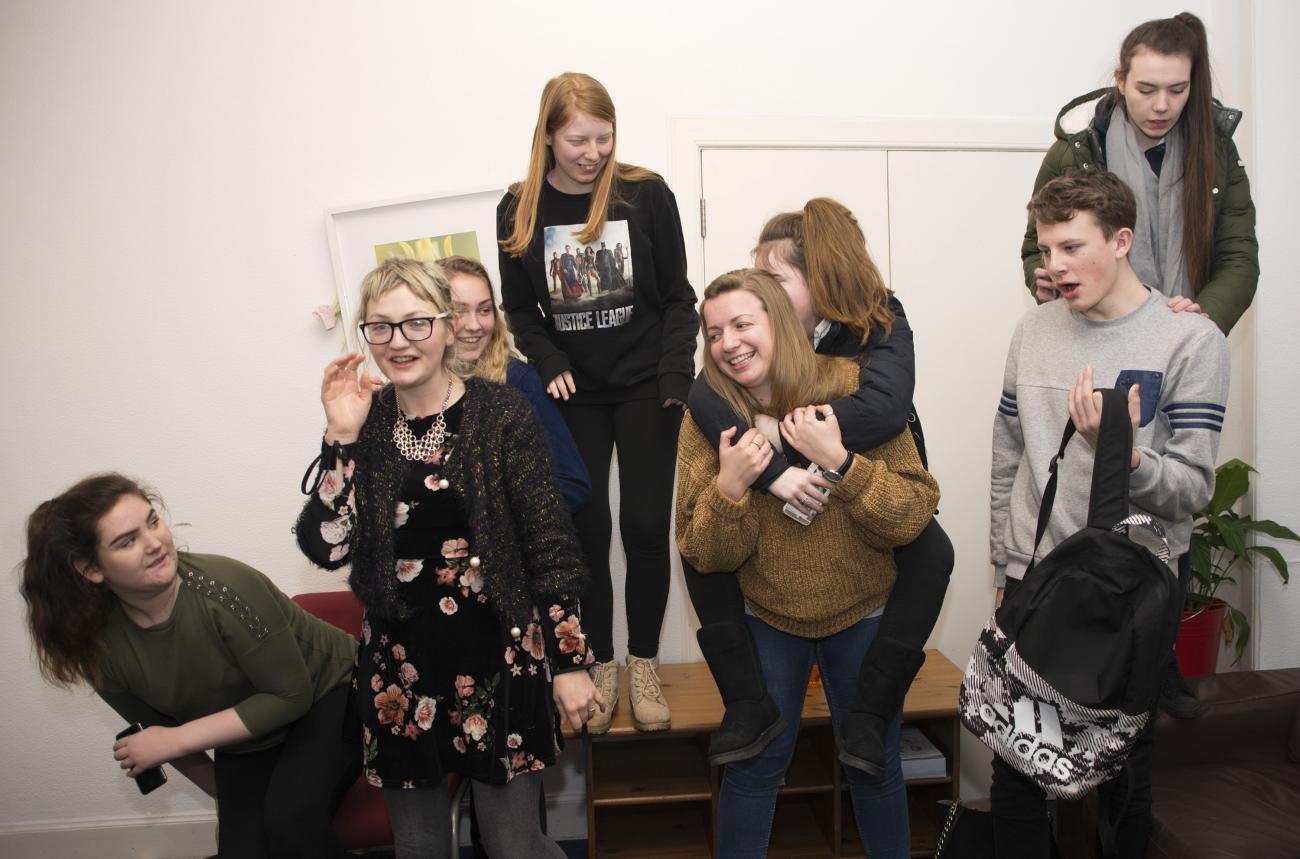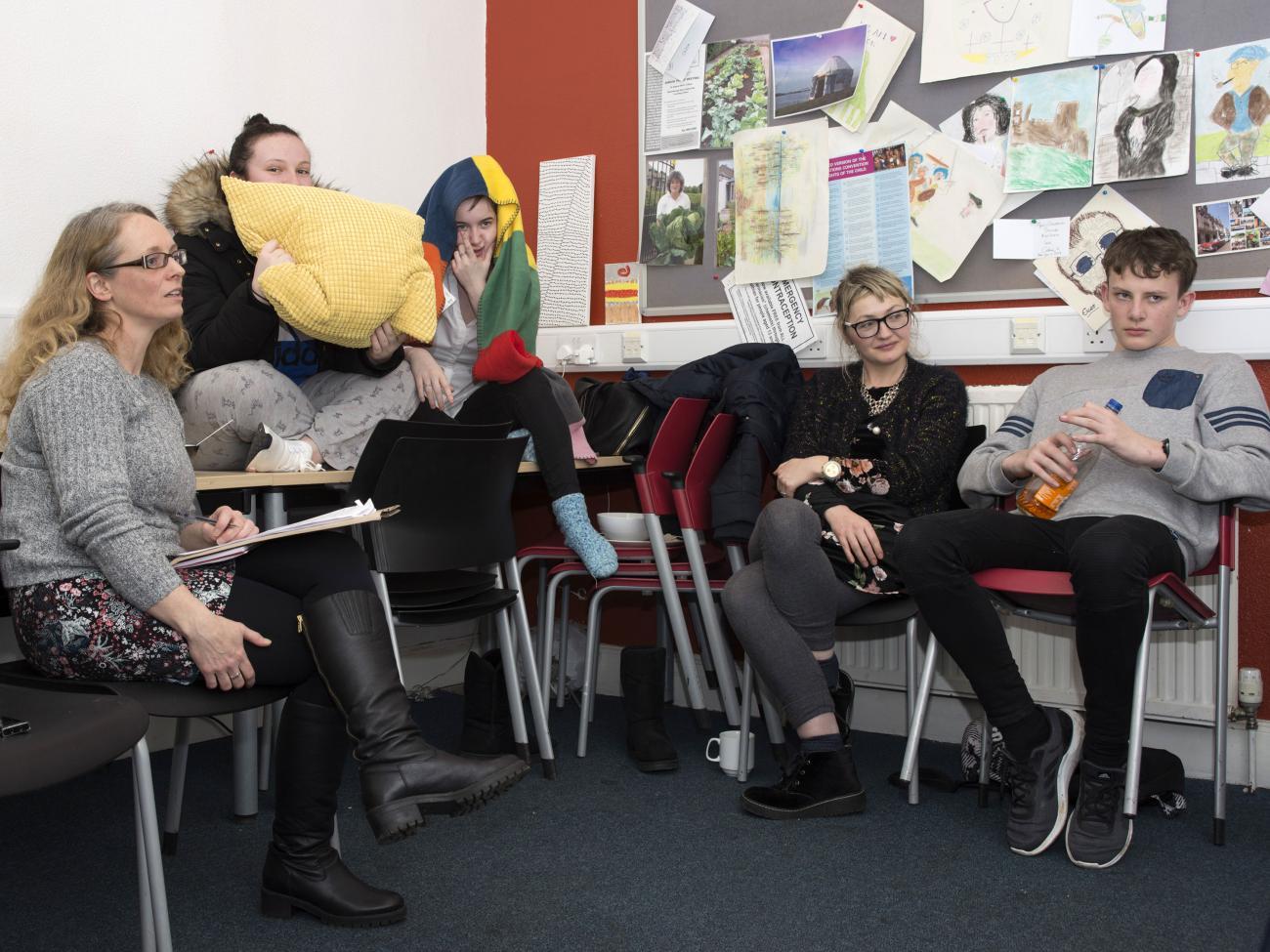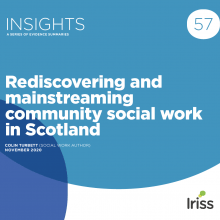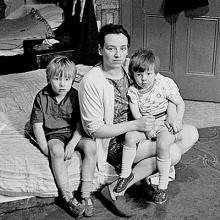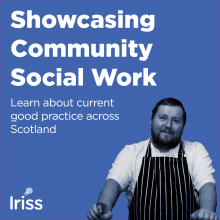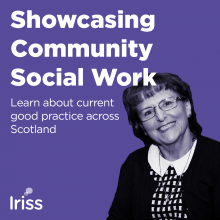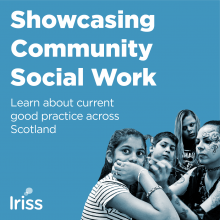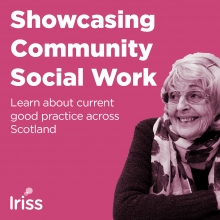This is one of seven case studies that celebrates what ‘community social work’ is and has to offer.
It demonstrates how working closely and in partnership with communities makes the best use of resources, generates new capacity and greater agency, builds resilience, and supports preventative approaches that make a real difference to people’s lives. It also has much to offer at a time of reduced public spending and pressure on services.
Story of care-experienced young people aged 14-25 who gain confidence and influence care services policy through the Champions Board. This reduces isolation and increases engagement to improve outcomes across education, health and employment.
The Champions Board (Champs Board) is a movement for change, centred on co-production and collaboration. The East Lothian Champs Board, was established by East Lothian Council Social Work and Who Cares? Scotland (an independent advocacy service). It is part of a Scottish Government initiative, bringing care-experienced young people into the strategic planning of care services.
The stated aims for East Lothian Champs Board are:
- Give a voice to young people in care
- Change the care system
- Help care-experienced young people access the support systems available
- Be treated with respect and get positive help from professionals
- Change young people’s lives in care
It’s very much about shifting the balance of power when it comes to planning the care of young people. The words people would use in social work to describe it are co-production and collaboration, self-directed support and a solutions and strengths-based approach.
Lisa Shine
Service and Practice Development Team
The emphasis is on self-directed support, having recognised through earlier initiatives that young people needed to have more involvement in the care strategy. Lisa Shine from the Social Work Service Development team, who supports the initiative for East Lothian, explains, 'There has been a drive towards young people participating in the strategic planning of services and to do that well can be really difficult and take a lot of investment.' After a successful initial period, the programme has received longer-term funding, so in addition to Lisa there are now two care-experienced people in paid posts supporting the group. 'We were very fortunate to get the funding through the Life Changes Trust to help young people to have a voice.'
In its early stages, the Champs compiled a list of seven areas where they felt there was a need for better support or improved policies for care-experienced young people. These included:
- Housing
- Education
- Relationships with the police
- Finances
- Aftercare
- Health
- Family/ keeping loved ones together
Through their development worker, the group was linked to the relevant head of service for each of these areas. The heads were asked to sign a commitment pledge to help the group improve support and policies within their remit. The heads of service are known as the Ambassadors.
Planning for children and young people in East Lothian happens through the Children’s Strategic Partnership. The heads have preexisting involvement with the partnership, so this is where the Champions got their buy-in.
The Champs and Ambassadors now meet quarterly for updates and take part in informal activities which help build relationships, cooperation and confidence in dealing with authority figures. This has all been useful in helping the young people put their views across effectively. The Champs also have residential sessions - an opportunity for planning and outdoor activities as a group.
There is a core group who attend regularly, with others who are in or out depending on what is going on in their lives at that point. Some are still at school, while others may move away from the group as they become more independent or get into relationships. Some have been excluded from full-time education, often as a consequence of their difficult personal circumstances, rather than because of behaviour involved. To support those with schooling difficulties, the group also runs education sessions and workshops, to help build skills, knowledge, capability and confidence.
Mapping the development and influences
The group is promoted by poster, advocacy workers, social workers and through the foster carer newsletters. In terms of day-to-day running, the Champs and their support team meet weekly, for two hours, in their own space where they can share their views and experiences in a relaxed atmosphere. They use a private social media group to organise food and transport. Participation assistants help to get the members along, which isn’t necessarily all about transport – one young person was encouraged to attend when the assistant brought her own dog along.
The meetings are in the same venue as their youth group (which itself grew from a six-week Bridges Project and social work employability programme in the same location), so it is familiar, comfortable, and they feel ownership of it. They cater for everyone within the group - there's a half hour to share food and have a general catch up, an hour of focused activity based around one of the seven identified areas of concern, and a half an hour at the end of ‘wind down’ activity.
To ensure the Champs benefit from the sessions, the support team puts considerable effort into the planning. Phones are put away for the duration of each session to help the Champs to focus on the people and the activities. Inclusion is important from the moment a new person arrives, and a number of the group report that a positive first experience is what encouraged them to go back.
Results
Around 30 young people have been involved in East Lothian Champs Board so far. Its outcomes include:
- Care-experienced young people benefit from involvement in the Champions Boards
- Organisations strengthen their commitment, knowledge, skills and capacity
- Policy and practice become more responsive to care-experienced young people
- Public awareness and attitudes become increasing positive towards care-experienced young people
- Care-experienced young people benefit from service improvements
Case study: Educating the educators
The group created a video about the challenges for care-experienced children in education, which was presented at the East Lothian Head Teachers conference in February 2017. The Champs have since used it as the basis of workshops for teachers and support staff in East Lothian. The support team reports on how it was a real eye-opener for a number of the professionals, who are unaware of the extent of the issues that care-experienced young people are trying to deal with day-to-day, and the effect that this can have on their schooling. Equally, the young people were surprised by how little some teachers knew about the care system. The Champs helped the professionals to understand how they can better support care-experienced children in school and how the principle of corporate parenting extends to teachers and schools. The workshops were such a success that the Champions have been invited back in 2018 to run sessions with primary school teachers and staff.
The Champs have informed and influenced a number of changes across their seven priority areas:
- The design and layout of the newly refurbished Children’s Hearing Centre in Tranent.
- Informing East Lothian Children’s Panel members how Children’s Hearings could be made more inclusive.
- The fostering recruitment campaign is targeting the recruitment of foster carers for larger siblings groups so that loved ones can remain together.
- Care-experienced young people participated in the recruitment and selection of a new service manager Children’s Services Long Term Care and Support.
- The Champions have informed work on the Continuing Care agenda and supported plans for a new, supported-living initiative called ‘Step Forward’.
- The positive working relationship established between the Champs and the Police Ambassador has informed their local corporate parenting plan to improve relations and better support care-experienced people when they go missing.
- Following the success of their teacher events, the Champions Board has developed a workshop that will be delivered to pupils in secondary schools in East Lothian. The Head of Education is very support of this initiative as it works to promote a positive image of care-experienced young people and challenge stereotypes.
In addition, the Champions have supported the increased use of the online survey tool, Viewpoint, by care-experienced young people and care leavers in preparation for review meetings and their Pathway Plan and Review. The aggregate information from Viewpoint gives the Champions a sense of what the big issues are for care-experienced young people. Worries about health, accessing life-story information, contact with friends and making new friends are the top issues raised. The Champs now want to encourage increased use of this tool as this helps them reach out to all care-experienced young people.
There’s also been an exchange trip to Belfast for representatives of the group, to explain how Champion Boards work and how they are effecting change in the Scottish care system.
The group meeting has a happy and relaxed atmosphere – the ‘free food’ is popular and they chat enthusiastically about past activities and future plans. Their diverse programme has a wide variety of sessions, which has included photography, Segway tours and events like Time to Shine, which is a national gathering for care-experienced people.
As the young people get older and into relationships, they reduce attendance at the Champs Board, but continue to keep a connection with the group.
I like the family atmosphere. - And the food!
You’ve got more support, even if you’re not here they always message you.
Loads of things have changed. I’ve been able to get on a bus, it’s great.
I’ve been able to go to school again
It is all support and you make friends.
Case study: Personal growth
One staff member began her contact with the Champions’ Board as a teenage mum - Lisa had attended a mums’ group and encouraged her to come along. Although she had been in residential care in the East of Scotland, the only mother and baby unit space available to her was in Glasgow. While this gave her a safe place to live with her baby, it removed her from her entire support network. When she moved on from the unit and returned to her home area she was moved into damp accommodation in East Lothian. However, through her contact with the Champions’ Board she received advocacy support to resolve her housing problems, grew her confidence and resilience and discovered, demonstrated and developed her capabilities. What this means in practical terms is that she has gone on to get a job as a carer, passed her driving licence and now works as a paid member of Champions Board staff.
What worked well and why
The Champions Board model operates across Scotland. Its strength is that it empowers the young people to draw in a positive way on what have been extremely difficult life experiences, giving them the platform, voice and confidence to make a difference. Because they are highly involved in how their group is run, there is a strong incentive to maintain involvement. This is something that they are leading, not a programme that is done to or for them, and they can see the ‘whites of the eyes’ of the people they want to influence.
Buy-in from senior staff has been vital in proving to the group that they are being listened to and taken seriously. Being able to debate the issues directly and see changes happen as a result not only builds the Champs’ ability to work through and present their ideas, but also builds their confidence and abilities to influence others effectively.
The funding model has also helped. East Lothian Champs Board is funded by the Life Changes Trust and is currently 18 months into three years of funding. The longer funding cycle allows the team to make plans and provide a stable platform for the young people. 'The funding means we can do a lot – it means we can do a lot of investment in leadership for young people,' says Lisa. Within the funding, there has also been capacity to make individual grants of up to £500 to care leavers who applied for things like driving lessons laptops or furniture.
Persistence on the part of the support team and the social workers has been instrumental in getting the young people to come along and try the group, but this has paid off and the young people keep coming back.
My social worker picked me up and said, ‘Get dressed, we’re going to a meeting!’
My friend told me to come along. I didn’t want to at first.
When I first got taken into care, Sophie Morris my advocacy worker [Who Cares? Scotland] came along and said I should try Champs Board, but she came out to the house, then I said I wouldn’t go unless my friend went too. She said she’d go if I did, so we came along!
Wider benefits
Apart from the longer-term benefits to care services in East Lothian, the young people involved are becoming more self-confident, self-sufficient and employable as a result of the Champs Board. This not only has clear benefits for their future prospects; at a societal level it arguably reduces the extent of the health and social care support that these individuals may need over the longer term.
Challenges
The support team has found that change takes longer to effect than they would have anticipated, so they have built this into their future plans to set realistic expectations for all involved.
As it’s evolved the support team has decided to change the structure of the meetings – they used to allocate two hours to each group but found that two hours of concentration on a topic could be challenging. With the new approach, there is a half an hour of general socialising at the start, an hour on their chosen topic and then a half hour wind-down at the end.
While funding requires that numbers of young people attending are recorded, the real benefit can be seen through the individual development of group members. Lisa talks about initially highly introverted individuals who have ‘found their voice’ and a belief in themselves, who are now able to engage enthusiastically with others, put their points forward and discuss issues. Others have been able to re-enter education where that was simply not feasible in the past. 'It’s amazing to see the difference,' Lisa reflects, describing how some of the young people transition from being perhaps too nervous to make eye contact for weeks to now talking enthusiastically about the issues and engaging with college courses – 'It’s really important to the individuals, it makes such a difference.'
Future plans
The young people ran an event at Queen Margaret University on 19 April 2018 – ‘We Are The Champions’ – explaining to an audience of 150 people what the Champs Board is and why it is important. The Children and Young People’s Care Commissioner was in attendance and they showed films that they have made about their experiences – the education video they shared with East Lothian teachers and a further piece about housing.
There are also plans to bring the young people into closer contact with new foster carers, so that the new entrants can learn from the young people’s experiences.
From discussions with the young people and based on things they are keen to try, the team has developed a programme of events for them. This collaborative, co-produced approach will continue. It is clear that they have the willingness and confidence to ‘think big’ about their aspirations for Champs Board (skydiving and trips overseas were both mentioned as personal development goals, as well as addressing their seven priority areas), and there is equally a willingness to look for ways to make their dreams into reality.
Going forward, the support team would like to see young people proactively joining the group for positive reasons. Currently they tend to be in touch through an advocate when something has gone wrong and the hope is to establish a more positive approach. Their challenge, therefore, is to inform young, care-experienced people about Champs Board, to ensure they know their rights, they find their voices and have their voices heard.
Key points
- An enthusiastic, supportive team with empathy for the young people and the energy and imagination to help them develop is central to the success of the programme
- Sustained funding (currently for three years) allows the team the time and space to build trust, relationships and to make a difference
- Persistence and patience are vital – both in terms of encouraging participation and in effecting change
- Inclusion on the first night - feeling accepted - is important in the young person’s decision about coming back
- A ‘safe space’ that people can treat as their own place aids confidence
- Food is a common focus for the group and helps to bring them together
- Buy-in from senior representatives of the services that the Champs Board want to influence gives the young people the confidence that their voices will be heard and acted on, while also emphasising to the senior personnel their obligation to act
Acknowledgements and thanks
Thanks to everyone who contributed to this research project. Lisa Shine, Charlotte Armitage, Laura Graham, Leah Hay and Sophie Morris from the Social Work Service Development Team in East Lothian and all the Champs who shared their snacks, experiences and enthusiasm for the group with us.
This document has been prepared for Iriss by Fay Purves CMRS of Creative Art Works CIC, a Community Interest Company. Unless otherwise stated, design and photography is by Lindsay Snedden LBIPP of Creative Art Works CIC.
We would also like to thank the Community Social Work Advisory Group members for their valuable input to this work: Trisha Hall (Scottish Association of Social Work), Stuart Hashagen (independent), Andrew Gillies (Social Work Scotland), Graham McPheat (University of Strathclyde), Keith Moore-Milne (Glasgow City Council), Kerry Musselbrook (Chair & Project Lead, Iriss), Liz Timms (SASW member), Colin Turbett (social work author and activist)
For more information about this work contact Project Lead: kerry.musselbrook@iriss.org.uk
